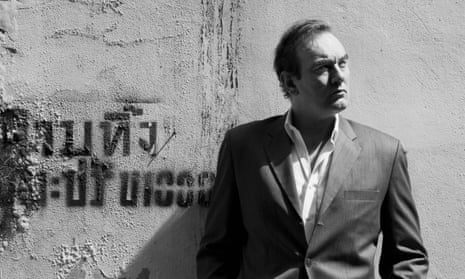It’s another summer on the Greek island of Hydra, another summer among the rich – specifically, the Codrington and Haldane families. Jimmie Codrington is a British airline owner and art dealer who keeps a “famously ironic” bust of Hitler in his front room. Jimmy’s first wife died when their daughter Naomi, now in her 20s, was a teen, and now he’s married to an absurdly snobby Greek woman. The Haldanes are American, less ridiculous and a little more opaque. Their daughter Sam, feeling bored by her own independence, falls quickly under the spell of the slightly older Naomi, who is dominant, naughty, cynical.
Early in the novel, Sam thinks: “A thousand summers could be like this, each one as beautiful as the last, and still nothing worth reliving a second time.” The pair aren’t alone in noting the lack of heft to their lives. Jimmie – not the most authentic of persons – wonders if you can make your children authentic against their will. Puzzling over why the young adopt political positions that don’t quite square with their own material conditions, Jimmie concludes that the problem with them is that they hardly come into contact with the real world. “Their consciousness had been created by the media, not by life.”
This is the sort of passage that suggests Beautiful Animals, Lawrence Osborne’s fifth novel, is going to be a cold-eyed look at bourgeois ennui and the parasitic nature of privilege, and that makes Naomi and Sam’s behaviour, when they happen upon a bloodied migrant lying exhausted on the rocks, utterly plausible. Finally, something is at stake.
The young women neither flee from Faoud nor alert the authorities, but find a hut for him in the hills and treat him a little like a secret pet. Naomi, particularly, relishes the game. Faoud fills her with a new vitality. “To save another person: it wasn’t nothing … it was a small shift in the balance of power towards the weak.” Sam, initially dubious of her friend’s “charity-worker passion”, is even more dismissive of her own father’s social justice indignation, which seems bookish and naive now that she has “looked into the eyes of Faoud”.
The intoxication is clear, and rivalry for Faoud’s gaze develops almost immediately, underscoring the fact that this isn’t really about Faoud at all, it’s about Naomi and Sam. “His misfortunes made him charismatic,” Naomi thinks, “and therefore arousing.” The fetishising of misery is a kind of Orientalism. By caricaturing the narcissism and projection that are driving the Faoud project, Osborne renders Naomi and Sam emblematic of the more self-congratulatory, or ham-fisted, aspects of first world humanitarianism.
Naomi hatches a plan to enable Faoud to escape the island, which goes about as wrong as a plan can go. At that point, the novel splits into two strands – Naomi on the island and Faoud on the road. The island narrative becomes one in which ordinary people suddenly behave like hardened, if hapless, criminals, while people obviously ill equipped to confront criminals refuse to call in the police. Naomi speaks in cod bad-girl soundbites: “It’s all a war, in the end. It’s a war we have to win.” What had been a slick, cold psychological novel sometimes veers into schlocky thriller territory.
The Faoud storyline is a different matter. It proceeds with stealth and complexity. Halfway through the book we know next to nothing about him. What we do know neither conforms to cliche nor plays on our pity. Naomi is incredulous to find that “the savage”, as she once refers to him, speaks excellent English and also French, and is “more bourgeois than herself”. Sam doesn’t like that Faoud’s eyes are free of deference. He won’t tell the girls where he’s from, though he is clearly educated and well travelled. But he’s also a migrant who has washed up on the rocks: “Either you act or you are shipped back in a cage to face an anonymous fate that no one will care about anyway.”
There is much to enjoy in Beautiful Animals. Osborne captures the sexed- up intensity and self-satisfaction with which young female friendships are sometimes suffused: “What beautiful animals we are, Sam thought, beautiful as panthers.” And there are great lines: “Humans are like spiders in their old age, moving from shadow to shadow in the bright sun, inexhaustible in their way.” If I was disappointed at times with how plot twists overwhelmed an otherwise bitingly satiric novel about cruelty and inequality and the muddle of good works, it may be that I wanted to read a different book from the one Osborne wanted to write – and indeed seemed initially on course to write. Which isn’t to say I could put it down. Beautiful Animals is compulsive reading.
Molly McCloskey’s When Light Is Like Water is published by Penguin.
Beautiful Animals is pubished by Hogarth. To order a copy for £12.74 (RRP £14.99) go to bookshop.theguardian.com or call 0330 333 6846. Free UK p&p over £10, online orders only. Phone orders min p&p of £1.99.

Comments (…)
Sign in or create your Guardian account to join the discussion